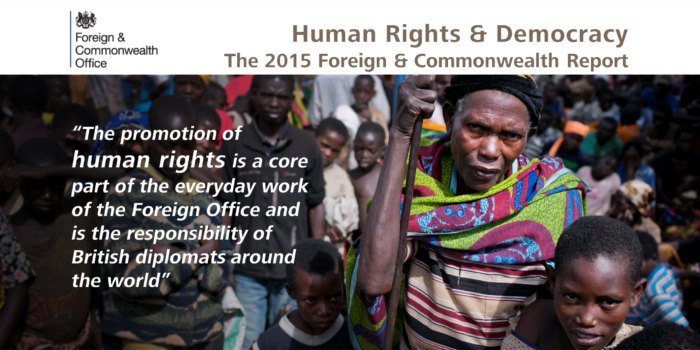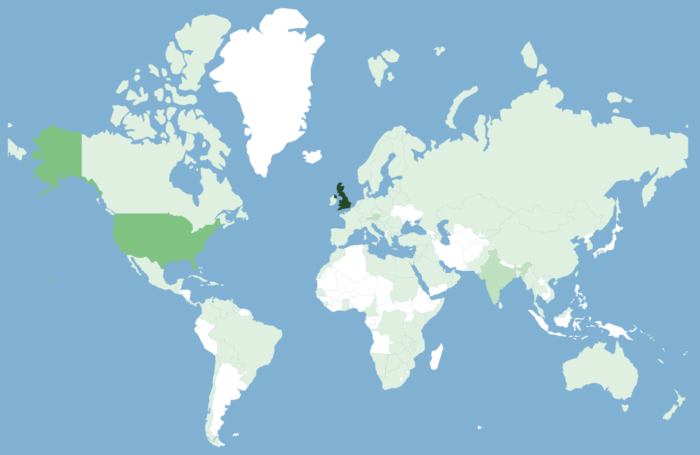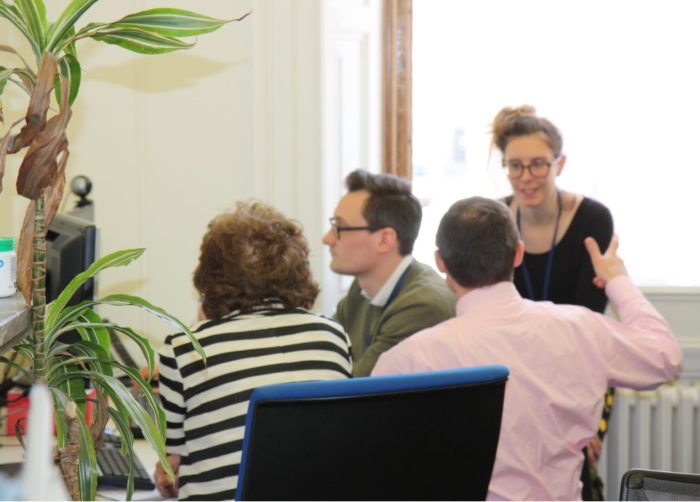9th June 2016 London, UK
Promoting Human Rights

As the Foreign Office’s Social Media Manager I spend much of my time distilling the intentionally nuanced and traditionally multilayered world of diplomacy into something engaging and consumable.
Case in point: The Foreign Office’s (FCO) annual flagship Human Rights and Democracy Report comprises around 50 pages of expert analysis of the issues the world and its people face, along with a cross-section of the UK government’s work to defend and promote human rights. It’s a fascinating read, but the path to the finer detail needs breaking up to get more eyes on it than just the core readership. That’s where our digital team and a social media comms plan comes in.
What we created, in close collaboration with our policy experts in the Human Rights and Democracy Department, was a programme of content that ensured all the main findings and themes of the report could be communicated in multiple mediums, platforms and voices. With the help of our Regional Digital Units this was all pre-translated into French, Spanish, Arabic, Chinese and Russian, and in designs that could be reformatted and optimised so that we had photos, audio, video and GIFs all in one content library for our network of embassies and missions to pick up and run with over the course of a week. Good social media content is pithy and expressive – it needs only enough information to hook, lead or provoke interest in the wider story – in this instance available via a link to the report.

We don’t always create content en masse for use overseas. Time and resources are a factor, but I think it’s also far better to provide a small brief and key messages, and then empower our network to utilise their local – and far better – knowledge to devise the best method to communicate these in another country. However, in a week when we were competing with St George’s Day, Shakey’s 400th anniversary, Her Majesty’s 90th birthday and a visit from the leader of the free world himself, a content library of creatives certainly helps mobilise a busy network to communicate this core foreign policy issue.
In the first week alone shares of the link to the report were 400% higher than in 2014 and we doubled the number of page views compared to the previous year. @foreignoffice, @JoyceAnelay and @FCOHumanRights were all in the top 15 influencers of global Twitter accounts discussing human rights on the day of the report

Another great advantage we had is our Human Rights Minister Joyce Anelay. Baroness Anelay frequently opens her diary to the digital team to capture the content we need to communicate the issues within her portfolio. On this occasion our Minister provided us with a podcast and EVERYONE else with an hour of her time and thoughts for a live Twitter Q&A.
The first, 5 minutes of the Minister’s voice where her passion and experiences helped narrate and contextualise the important story of global human rights issues. The latter, an hour of openness and engagement on a range of often complex and sensitive issues such as the arms trade, death penalty, gender rights, freedom of expression and democracy.

Human rights will justly always be one of the more emotive aspects of world affairs and diplomacy – the rights and freedoms of people has a tendency to do that. However, the FCO thinks it’s important that a global audience can discuss human rights with the UK’s leading decision makers, and that a Foreign Office network that then communicates these around the world is even better.